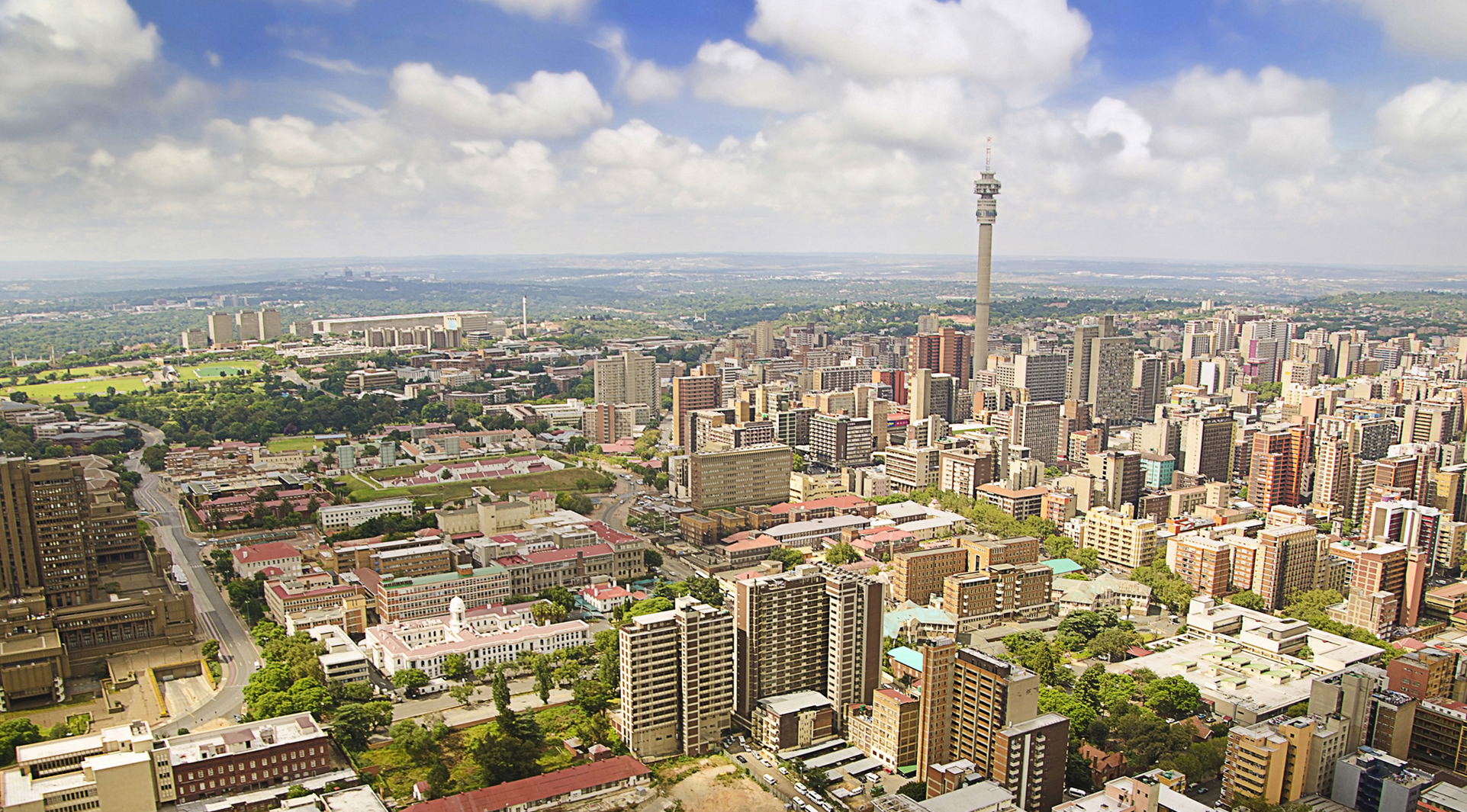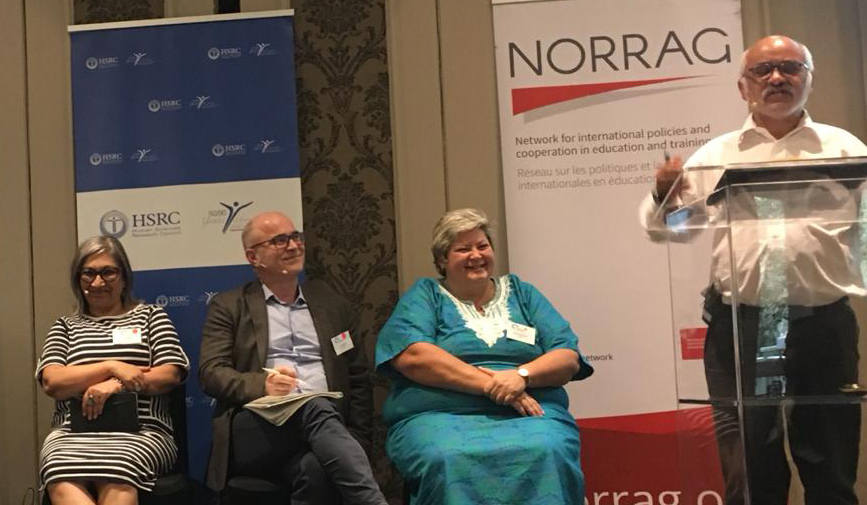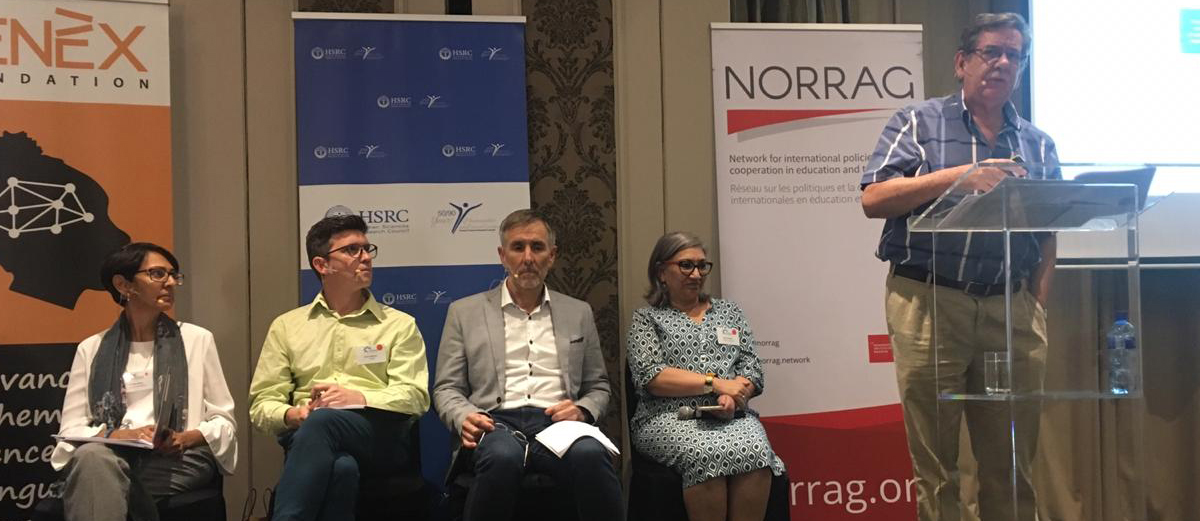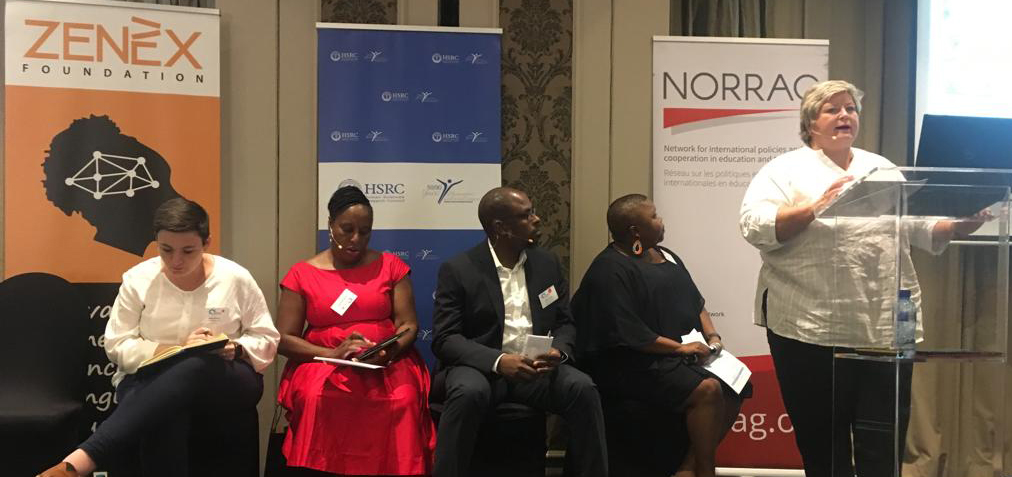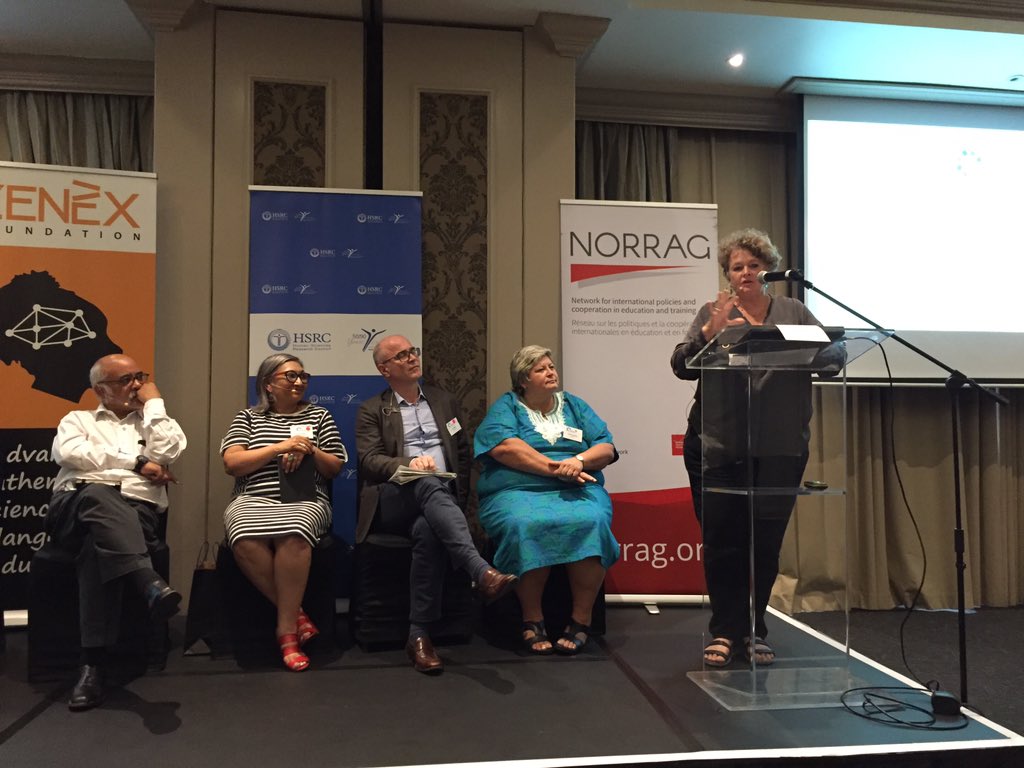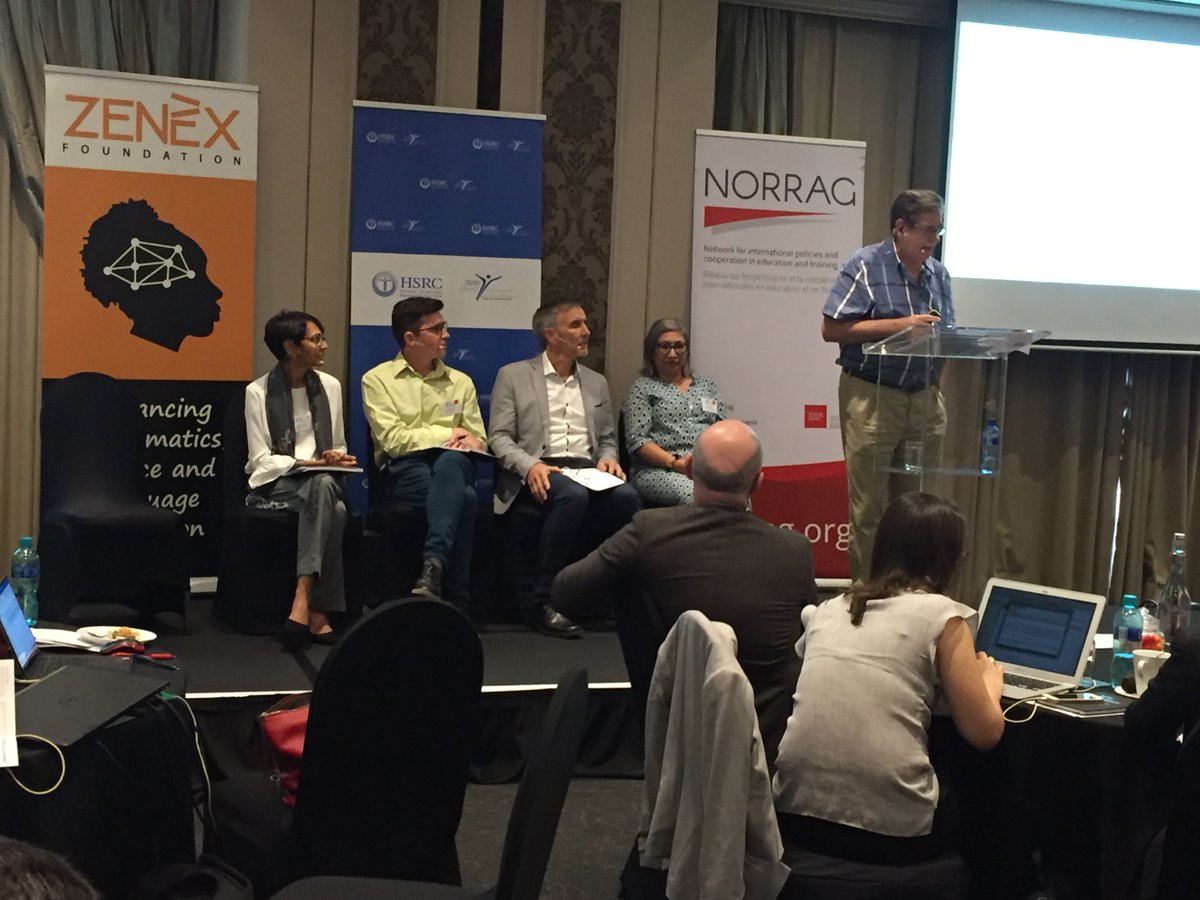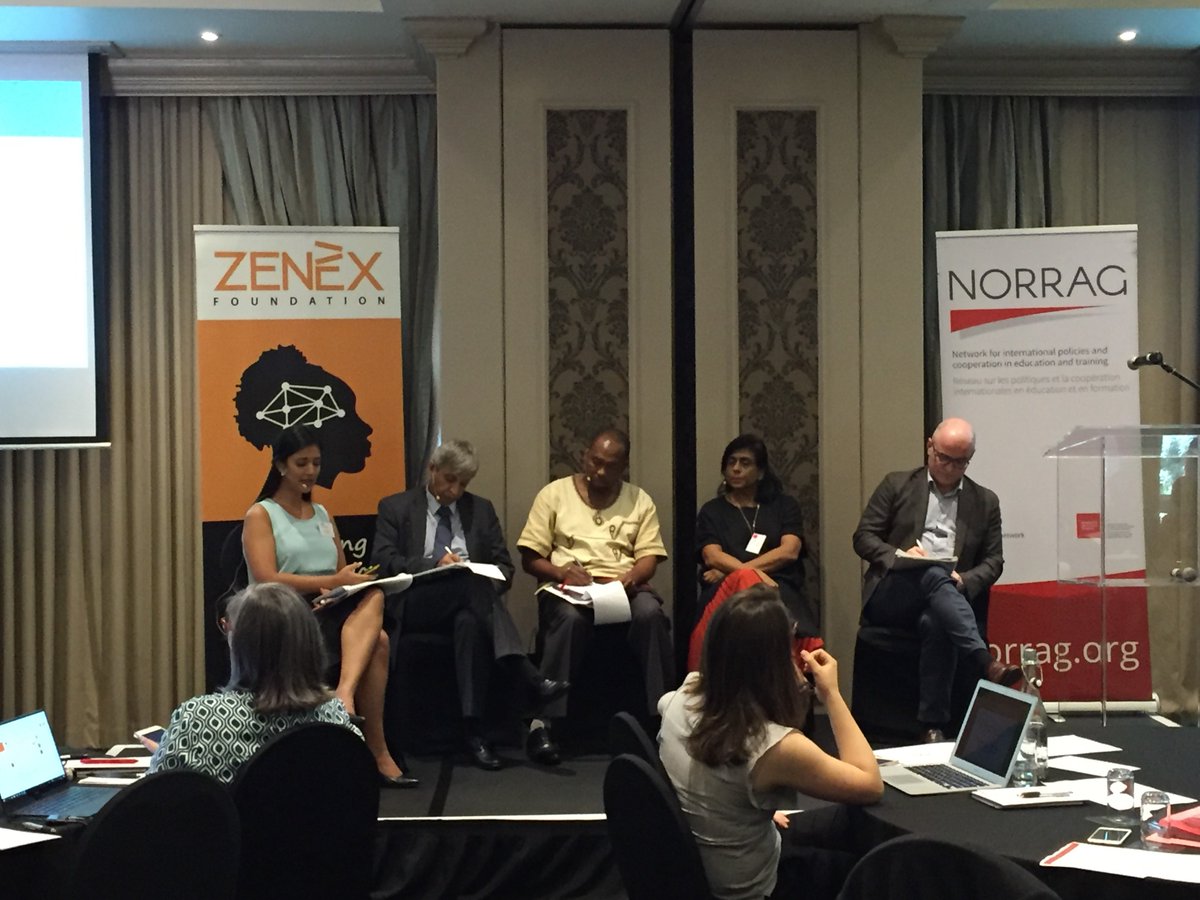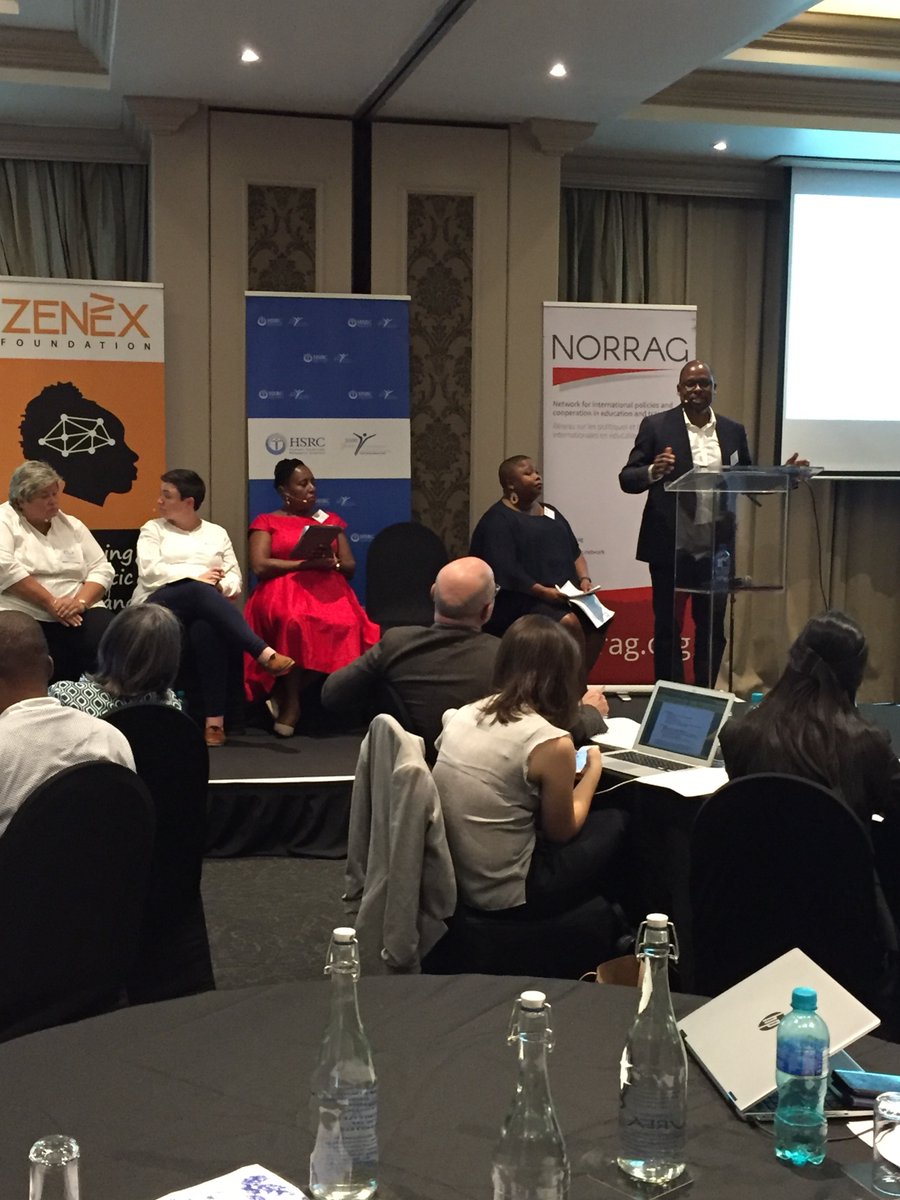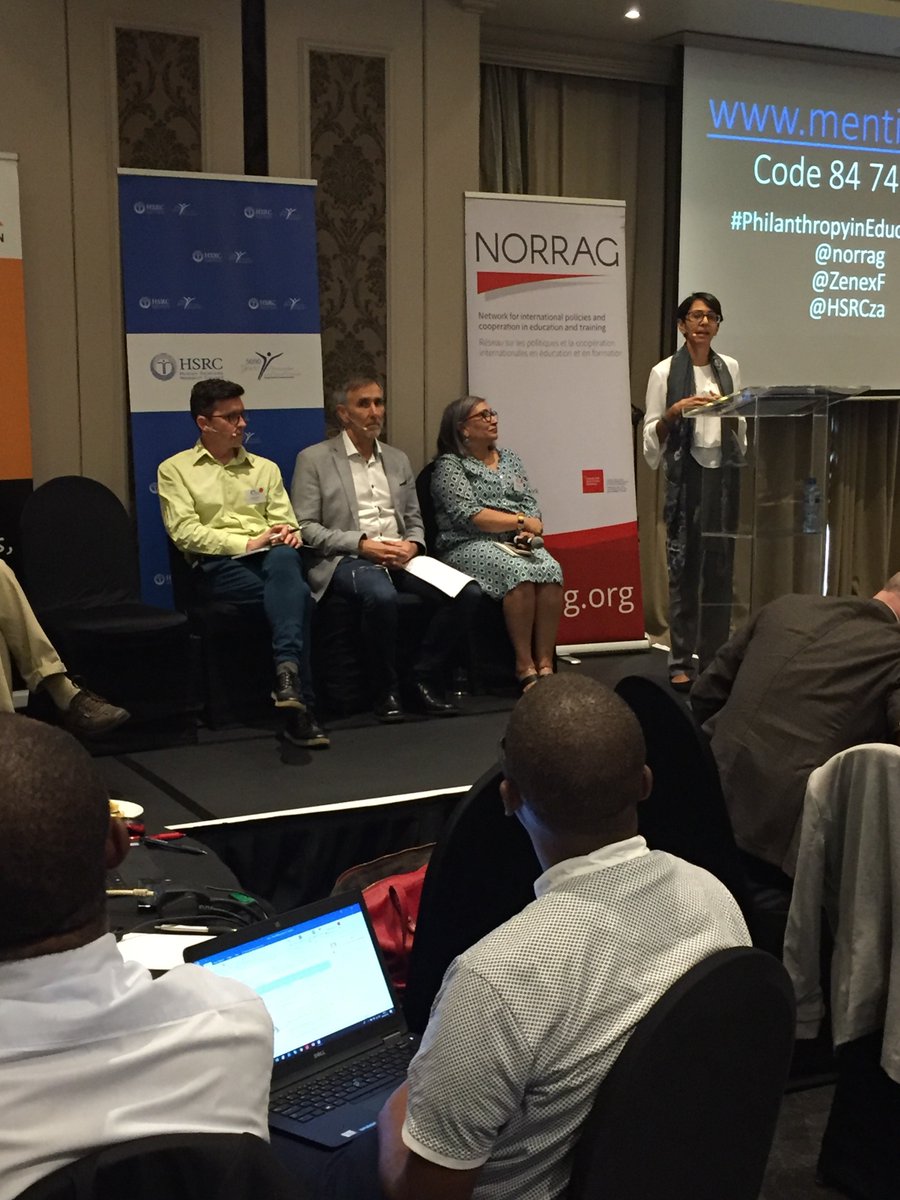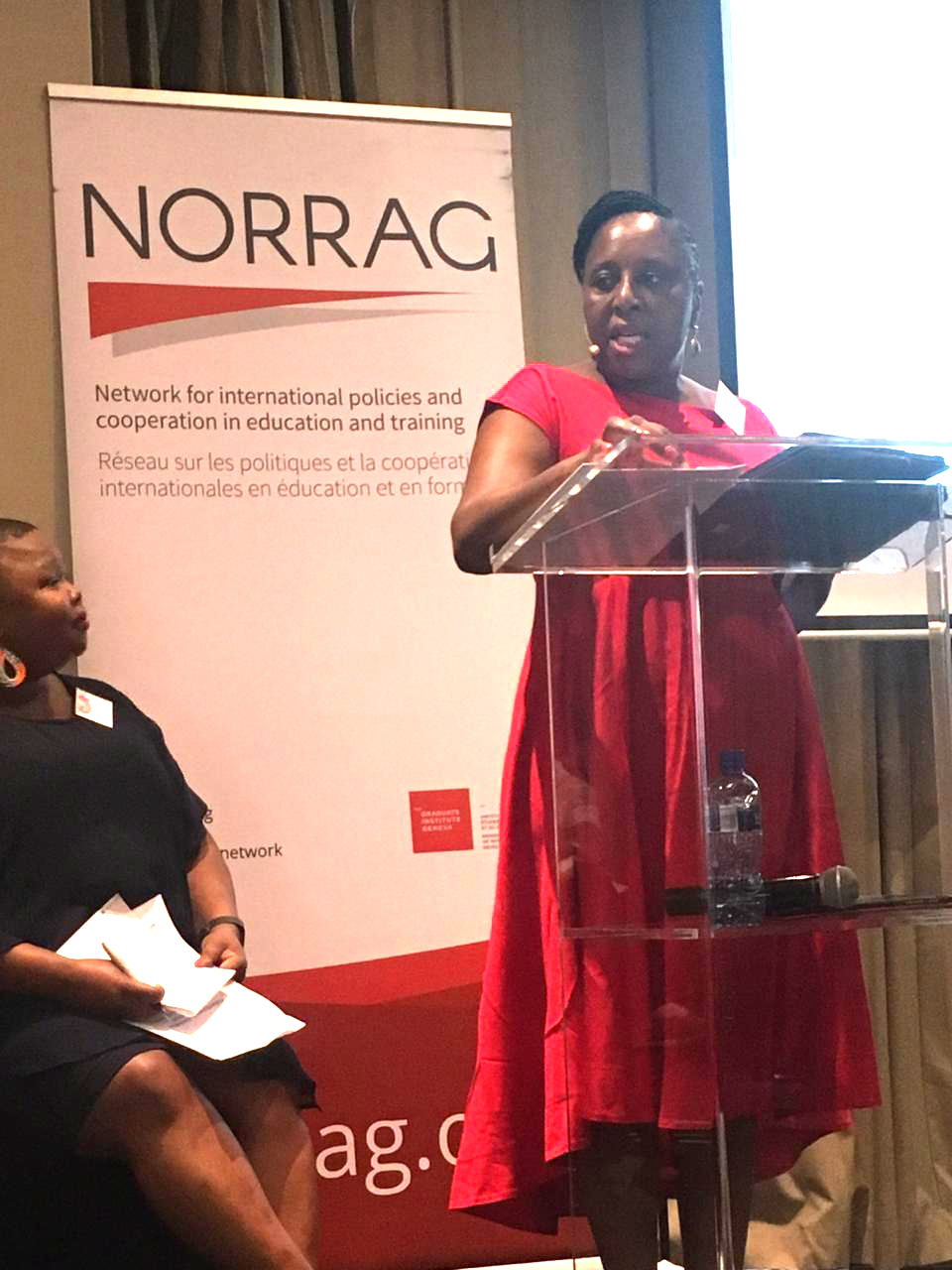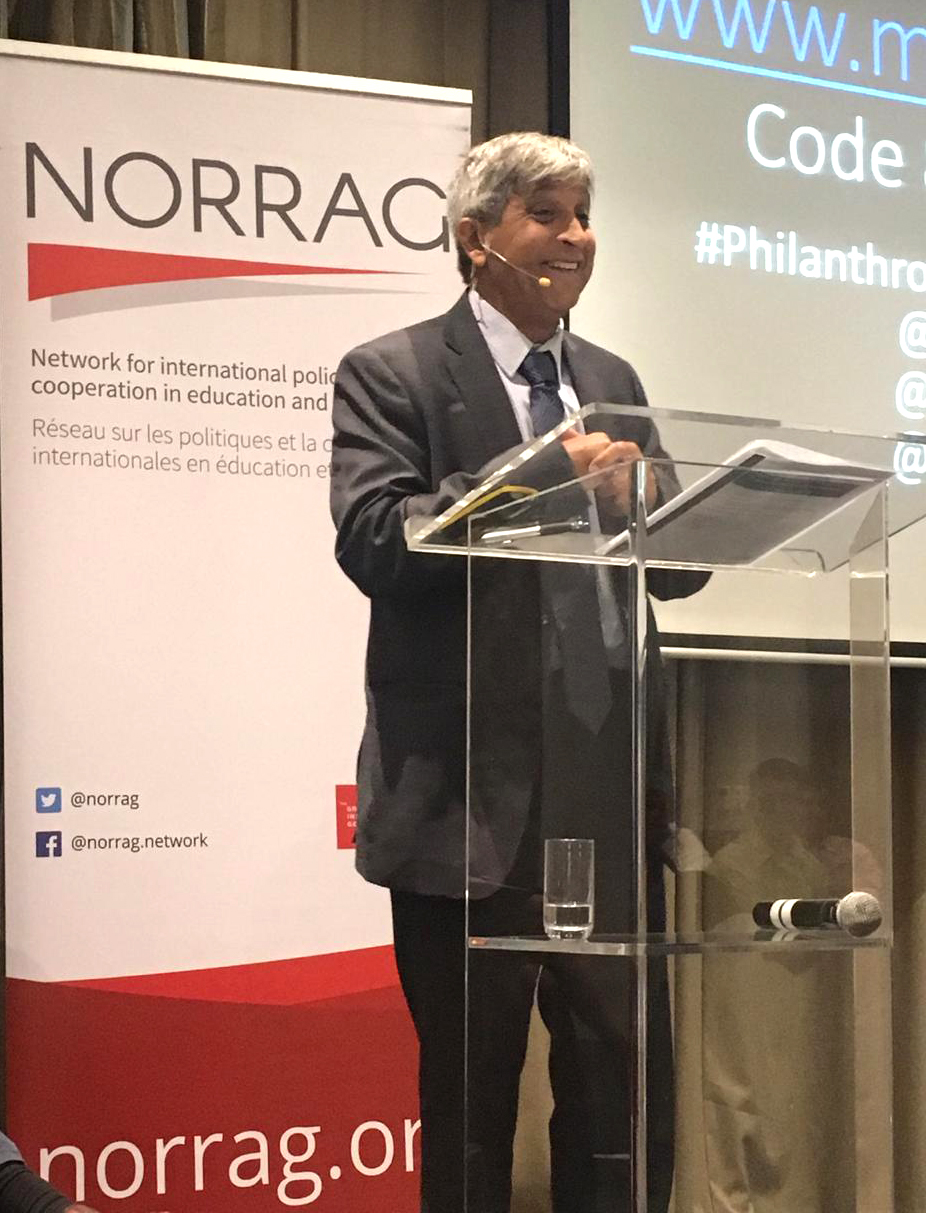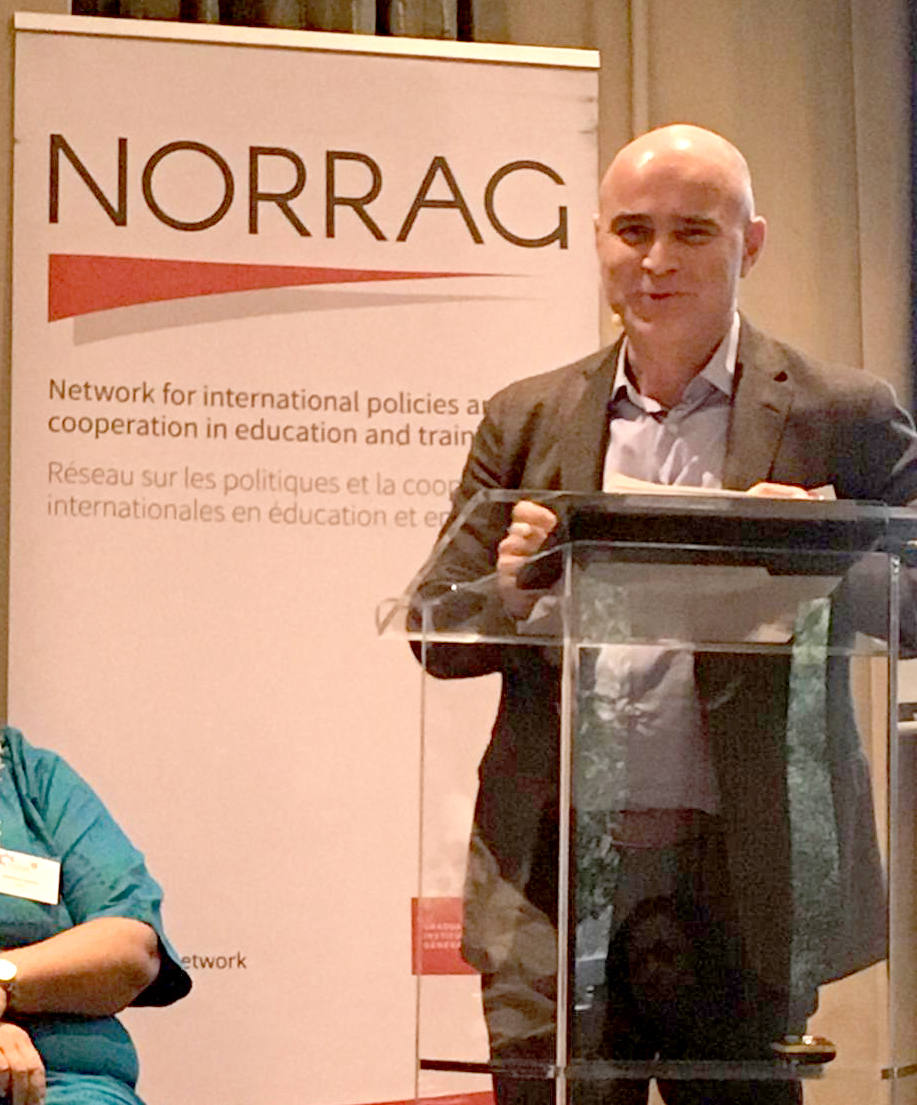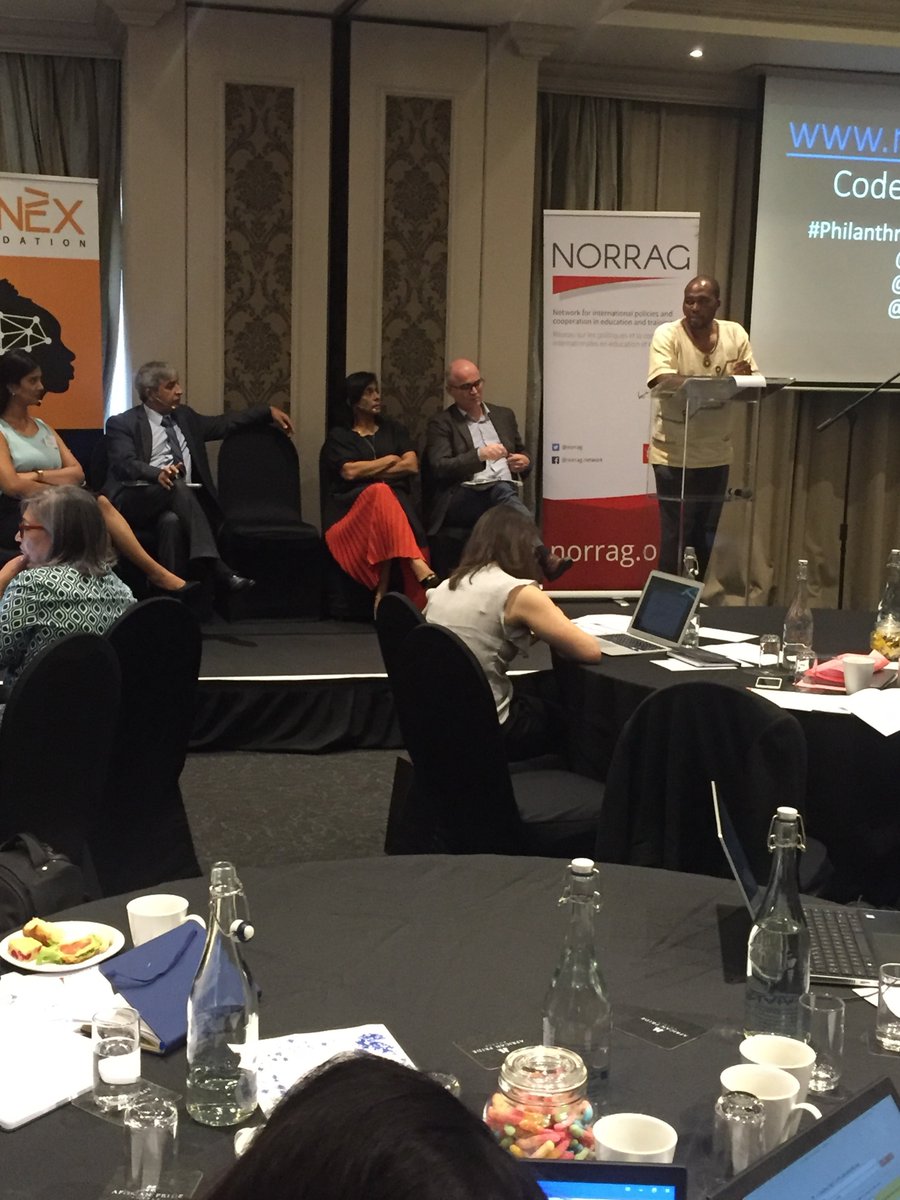Event Report - Philanthropy in Education in South Africa: A space for learning and collaboration
As part of the Philanthropy in Education (PiE) series, the Zenex Foundation, NORRAG and the Human Sciences Research Council (HSRC) organised a roundtable that brought together about 50 people from philanthropies, government representatives, researchers and implementing partners. “Philanthropy in Education in South Africa: A space for learning and collaboration” took place on 31 January – 1 February 2019 in Magaliesburg, South Africa with the primary objective to engage participants in an open discussion on how South African philanthropies are collaborating and engaging with the public sector to support the improvement of quality of education. More specifically, the discussions focused on sharing experiences on collaborative approaches between philanthropy and the public sector; examining the challenges philanthropies face in using research in education; analysing how philanthropies can create opportunities for innovation and exploring potential avenues of collaboration between social actors in education. Zenex, NORRAG, HSRC and Stellenbosch University prepared three background papers for the event, which will be made available shortly.
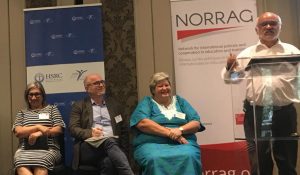 After opening and framing remarks by Gail Campbell (Zenex), Crain Soudien (HSRC) and Joost Monks (NORRAG), the first panel set the stage and provided background information to open the discussion. Arushi Terway (NORRAG) presented global trends in philanthropy, which is moving towards more strategic ways of giving aiming at social change. Vijay Reddy (HSRC) offered an overview of current state and scenarios in the South African education system, describing the challenge of inequality and how early years education can predict one’s future. Adam Habib (University of the Witwatersrand) continued the discussion proposing principles of how philanthropic giving can create systematic changes by giving in scale and focusing on specific gaps that can enable social mobility. To conclude, Jabulani Ngcobo (Department of Basic Education) stressed the need and challenges of building public-private collaboration.
After opening and framing remarks by Gail Campbell (Zenex), Crain Soudien (HSRC) and Joost Monks (NORRAG), the first panel set the stage and provided background information to open the discussion. Arushi Terway (NORRAG) presented global trends in philanthropy, which is moving towards more strategic ways of giving aiming at social change. Vijay Reddy (HSRC) offered an overview of current state and scenarios in the South African education system, describing the challenge of inequality and how early years education can predict one’s future. Adam Habib (University of the Witwatersrand) continued the discussion proposing principles of how philanthropic giving can create systematic changes by giving in scale and focusing on specific gaps that can enable social mobility. To conclude, Jabulani Ngcobo (Department of Basic Education) stressed the need and challenges of building public-private collaboration.
The second panel, chaired by Vuyiswa Ncontsa (BRIDGE) advanced the discussion focusing on the purpose and role of philanthropy in improving education. While presenting a meta review of Public Private Partnerships in South African education sector, Sharlene Swartz (HRSC) described how philanthropies must verify if the effectiveness of their programs, their agenda-setting process and accountability are working in favour of social justice. Janet Jobson (DG Murray Trust) argued the role of philanthropy is to ask challenging questions and gather critical mass to work on them, leading to innovation. Sizakele Mphatsoe (Kagiso Trust) outlined and illustrated how philanthropies can foster collaboration between funders, government, implementing partners and community in order to catalyse for social change. Finally, Godwin Khosa (National Education Collaboration Trust – NECT) presented the work of NECT as an organisation dedicated to strengthening partnerships within the civil society and between the civil society and the government in order to achieve South Africa’s national goals for basic education. Mr Khosa reminded that this process is inherently political and should not be over simplified.
The third panel, chaired by Gail Campbell, focused on the benefits and challenges of monitoring and evaluation (M&E) in philanthropic action in education. The panel was opened by Johann Mouton (CREST, Stellenbosch University) who presented his paper on the use of M&E, data and research by philanthropies and NGOs working in the education sector. Fatima Adam (Zenex Foundation) discussed how program officers at philanthropies must build capacity to interpret the conclusions from M&E in order to improve programs and explore ways to maximise M&E’s use and influence. Henre Benson (CASME) continued by examining how M&E needs clarity in its purpose, and to build capacity and foster communication among stakeholders. Finally, Gary Shearer (The Saville Foundation) presented a critical point of view, stressing the often high cost and limited use of M&E and described how their initiatives were not limited by strict M&E plans, but instead provide flexibility to their partners in designing and reporting on their programs.
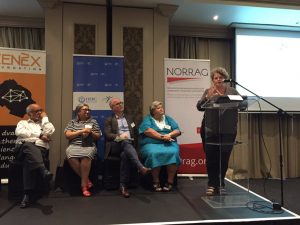 The second day proposed round tables in which all participants could discuss 3 topics: the role of philanthropy in improving the quality of education; alignment and collaboration with government; and detailing how to monitor and evaluate programs success. These discussions were later reported to the whole group in the final session with the discussant panel composed of Mary Metcalfe (PILO), Crain Soudien, Gail Campbell and Joost Monks. Their discussion stressed how the roles and relationships between social actors are changing, which requires embracing new dynamics to improve education and social justice. In this context, philanthropies can contribute in many ways, especially in connecting stakeholders and promoting and catalysing new solutions for education and social problems. This demands philanthropy to continuously reflect and adapt to ever-changing contexts and embrace complexity. The discussions culminated in the sharing by Mary Metcalfe of a draft statement on responsible philanthropy in education. She proposed as next steps over the coming months, the launch of a “Johannesburg Declaration” to define a global frame of reference for sustainable and responsible philanthropy in education. This Declaration will be a key outcome of the PiE series. After two days of productive discussions, the event had an energetic ending chaired by Sharlene Swartz, in which many participants accepted the challenge to take on new commitments to advance education in South Africa and to build on the results of the roundtable.
The second day proposed round tables in which all participants could discuss 3 topics: the role of philanthropy in improving the quality of education; alignment and collaboration with government; and detailing how to monitor and evaluate programs success. These discussions were later reported to the whole group in the final session with the discussant panel composed of Mary Metcalfe (PILO), Crain Soudien, Gail Campbell and Joost Monks. Their discussion stressed how the roles and relationships between social actors are changing, which requires embracing new dynamics to improve education and social justice. In this context, philanthropies can contribute in many ways, especially in connecting stakeholders and promoting and catalysing new solutions for education and social problems. This demands philanthropy to continuously reflect and adapt to ever-changing contexts and embrace complexity. The discussions culminated in the sharing by Mary Metcalfe of a draft statement on responsible philanthropy in education. She proposed as next steps over the coming months, the launch of a “Johannesburg Declaration” to define a global frame of reference for sustainable and responsible philanthropy in education. This Declaration will be a key outcome of the PiE series. After two days of productive discussions, the event had an energetic ending chaired by Sharlene Swartz, in which many participants accepted the challenge to take on new commitments to advance education in South Africa and to build on the results of the roundtable.
Picture gallery
Picture credit (featured image): Shutterstock

